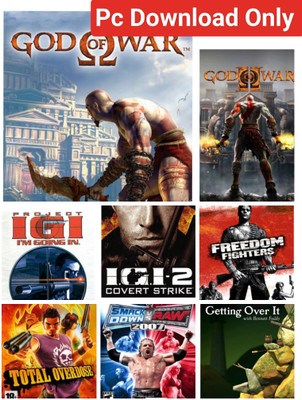
Clubics 32 bit PSP VIDEO GAMING CONSOLE WITH INBUILT DIFFERENT HD VIDEO GAMES Limited Edition (Code in the Box - for PC)
Share
Clubics 32 bit PSP VIDEO GAMING CONSOLE WITH INBUILT DIFFERENT HD VIDEO GAMES Limited Edition (Code in the Box - for PC)
Be the first to Review this product
Special price
₹2,277
₹4,999
54% off
Available offers
T&C
T&C
T&C
T&C
Delivery
Check
Enter pincode
Delivery by13 Aug, Wednesday
?
if ordered before 10:59 AM
View Details
Highlights
- Edition: Limited Edition
- Game Modes: Single-Player
- media_format: PC
- Type: Full Game
Services
- Cash on Delivery available?
Seller
Description
Description Specification:1) LCD Display with Full Color Digital Crystal Screen 2) Support many different 8-bit true color games. 3) TV-out function ,plug and play 4) With powerful Lithium rechargeable battery 5) Small and delicate, easy for carrying in pocket 6) With Camera function for video recording, Photoshoot. Package Includes: 1X Game cassette 1X Game player 1X Power charger 1X 700mAH Lithium Battery 1X AV cable 1X case 1X User Manual
Read More
Specifications
In The Box
| Sales Package |
|
General
| Model Name |
|
| Media Format |
|
| Edition |
|
| Type |
|
| Genre |
|
| Video Encoding |
|
| Game Modes |
|
| Publisher |
|
| Developer |
|
| Online Platform |
|
| Ideal For |
|
| Steps to Redeem Game |
|
Minimum Pc Requirements
| Operating System |
|
| Intel Processor |
|
| AMD Processor |
|
| ATI Graphics |
|
| NVIDIA Graphic |
|
| RAM |
|
Additional Features
| Other Features |
|
| key_features |
|
Ratings
| ESRB |
|
| PEGI |
|
Be the first to ask about this product
Safe and Secure Payments.Easy returns.100% Authentic products.
Back to top







